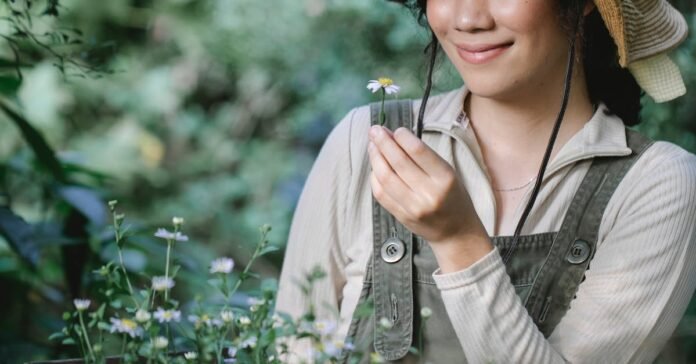Some tips on how to start with your own organic garden makes a great start for beginners. Below are some tips that will hopefully assist you into making better decisions and to start applying things to your garden properly. You need to work hard, so it is to your benefit to learn something from these tips.
If you have a young baby, consider wearing your child in a backpack while you garden. Being outdoors is a great stimulating experience for an infant, plus they get to spend more time with you. Organic gardening is safest for baby, as there is no risk of them encountering harsh or dangerous chemicals while you work.
It is possible to grow an organic garden all year if you have a sufficient light source for an indoor garden. Plants need plenty of light in order to grow properly and there are bulbs that can be purchased to provide indoor gardens with the appropriate amount of light to have them thrive and produce a fruitful bounty.
A great first step to having a successful organic garden is to test the acidity of the soil in your garden. The ideal number is 6.5, if your soil is on the low end, it’s too acidic and if it’s on the high end it’s too alkaline. Neither of those situations lends itself to a successful garden. So by purchasing a soil testing kit before planting, you will assure yourself a beautiful organic garden in the summer.
As soon as your seeds start sprouting make sure they have enough light. Move your plants next to a sunny window or put them inside a greenhouse. If you cannot do this, use fluorescent lights. Remember that your plants need up to sixteen hours of light every day.
When beginning your own organic garden, you should always make sure you moisten your mix that is in the containers before you sow the seeds. If your mix is not moist, it will dry out. This could cause your plant to die before it is given a chance to grow.
Before you begin planting in your garden, it’s a good idea to test your soil’s acidity first. Home testing kits are readily available. Your soil should have a pH around 6.5 for most vegetables. If the pH is too low, you can boost it by spreading lime. If it’s too high, you can use powdered sulfur.
If you don’t have a big yard, or any yard at all, you can still grow great organic produce in containers. Most vegetables, other than some root vegetables, grow just as well in pots as they do in the ground. There are also many varieties which have been bred to do well in containers.
To help spread mulch easily, you can use a flat-head rake or a bow. If you are using a rake, you should use the rakes tined edge to pull and spread your mulch. Use the flat side of the rake to even your mulch on the bed. You will want to use a light push then pull action.
Looking for a natural way to kill weeds in your garden? You can easily control weeds by using layered sheets of newspaper. Weeds must have sunlight in order to grow. If the weeds have already sprouted, you can place the newspapers over them and they will die due to lack of sunlight. It’s easy for newspapers to break down over an extended period of time, making them great for compost. If you want it to look better, just add a layer or two of much over top of the newspapers.
The best time to water your organic garden is early in the morning. By watering at the start of the day, you are allowing any moisture that accumulates on the leaves to dissipate. This helps to discourage the growth of any mildew or fungus on the leaves that cold air and water would combine to create.
Avoid over fertilizing your plants. Over fertilizing can lead to lots of lush growth, that is soft and attractive to pests and animals. Slower growing gardens are often hardier, meaning they are better at resisting pests and diseases. This is one of those cases where too much of a good thing isn’t a good thing at all.
Pests can be a challenge when you are starting organic gardening. You need to keep the soil that you are using healthy. Healthy soil brings forth healthy plants and they can withstand some damage from pests. Your plants will not only be healthy but they will be beautiful as well.
These tips should have given you some much needed insight on where to start and how to begin growing your own personal organic garden. These tips were thoughtfully compiled to help the new organic gardener learn the basics and some other cool techniques that are simple enough to use for their garden.


